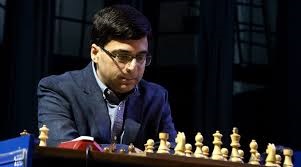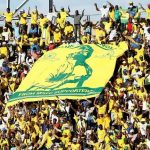
In Frame: Former world chess champion Viswanathan Anand
When the moment finally arrived, without gripping drama or clutching suspense, the inner joy refused to manifest outwardly. Viswanathan Anand had been plotting and dreaming of scaling the world chess summit for the best part of the 1990s, but when that hour to celebrate eventually arrived, he was at a loss of celebrations.
He took a deep pause, deeper breath and placed his palms on his face, staring at the board where a few pieces lay scattered. “I felt relieved. It was one thing off my back, you know, wondering when and where that would happen, and suddenly here it is. That felt very, very good,” he tells The Indian Express, two decades after the memorable afternoon in Tehran.
Then, with an interminable pause, he adds: “It was a big step. The decisive step.”
Suddenly, the echoes of the past thundered like shooting stones from a restless mountain. “I had been so close to the peak so many times, but always tripped and fell short by a step or two. I had waited so long for this step. I felt like I had accomplished a mission,” Anand says.
Not that the defeats in New York (1995) and Lausanne (1998) haunted him every waking hour, not that his great rival Anatoly Karpov’s slights on his lack of killer instinct played in his mind on a loop, but there came a time when Anand himself had begun wondering whether losing finals was more than a quirk of fate. In New York, a ruthlessly masterful Garry Kasparov, the big K in chess, pounced on the slightest of Anand’s mistakes, clinching a dilly-dallying 18-game match spread over 30 days.
Lausanne hit Anand harder, for after achieving a decisive endgame advantage in the first game of the 25-minutes-per-player tiebreak encounter, the Indian grandmaster erred and lost. The acerbic Karpov wasn’t to leave without his characteristic scorn. “I don’t think he has the killer instinct to be a world champion,” he had then said.
It hurt Anand, though after adding four more world titles to his cabinet, he could shrug it off as the “narrow mindset” of small people. “It didn’t surprise me, but it still hurt. I mean it irritates you at some level. Because you feel every chess player will know his answers are nonsense, but people slightly further away may not realise it. They may actually believe this story,” remarks Anand about his adversary’s penchant for verbal posturing.
Then, upon reaching Tehran, he had little time to brood on the past. Thanks to a bout of fever. “After the qualifying rounds (in Delhi), we (wife Aruna and he) decided to go for a nice meal in the city, but the next day both of us woke up sick. High temperature and an upset stomach. We rushed to a doctor who gave some medicines and we somehow managed to reach Tehran. There was no other option but to be there. The first two days were awful. I mean, we were just taking medicines and sleeping and resting,” he recounts.
In hindsight, though, it turned out to be a blessing, as he had no time to dwell on his past failings. “Looking back, I would say it was even nice, because when you have something like that, which forces you to rest, you don’t feel guilty about not working. So very little work got done. But the good thing was, by the time I came out of my fever just as the tournament was starting, I felt much better. So that was helpful. I think Aruna suffered a bit longer. But in the end, it all worked out well,” he says.
Thus, on December 20, he was sitting in the rectangular room of the Mamna Convention Hall in central Tehran in the backdrop of the Al-Borz mountain ranges, hugging the city like an overbearing mother, opposite the relentlessly attacking Alexei Shirov. The latter, a Latvian based in Madrid and one of the most aggressive players in the game, had pride to salvage and a championship to win, as he was denied the opportunity to challenge Kasparov for the Classical World Championship, despite winning the Candidates’ match two years earlier.
The match, in certain sections of the Western media, was billed the clash of the lightning kids, though as it rolled out, both adversaries embraced calculated aggression than quick-kill. With black, Anand managed to draw the first game before he won the next two with a combination of guts and superb calculations. Into the fourth game, the contest was more or less decided, with Shirov needing a miracle to claw back into contention.
For all practical purposes, it was a dead rubber, yet it’s for the fourth game that the final is best remembered. Anand employed a radical, mysterious strategy — Steinitz Variation of the French Defence — undertaking to defend difficult positions against one of the best attacking players of our time. He pulled it off spectacularly, yet he wonders why the move gathered so much attention, and why it’s still being discussed.
“Actually, I’d been playing that set up into French Defence may be months before I played it here. So, it couldn’t have come as a surprise, but I liked the positions and felt that I could still challenge him there. Yeah, also, it must be admitted that I already had a two-point lead. So that gives you a cushion to experiment also. So even if you lose a game, you still have a one-point lead but in all the complications, it turned out very well,” Anand puts the move in perspective.
The final score-line read 3.5-.5, a stroll by all accounts. But it wasn’t as facile as it looked like. “If you look at the score, that’s what it says. But I remember that these things were never as easy as they seem. I mean, if you try to relive the experience, you will find that there was always a bit of worry, this problem, that problem. You’ll obviously be anxious about your opening game, then the second day, and so on and so forth. A day before the match, you think the next day is the most important, then it goes on and on. There were a lot of problems we anticipated and worried about, but in the end, none of them happened and everything turned out smoothly,” he elaborates.
Maybe, the facile disposition of the final explains Anand’s muted celebrations. It ended without a bang. Not even with a whimper. But with a simple handshake. A deep pause and a deeper breathe. He had finally scaled chess’s Mount Everest.
*********
Or had he? A long-running feud between Kasparov and the game’s governing body FIDE, and a lawsuit filed by Karpov against the same organisation, had left at least two other players with claims of the title. Three months ago, Vladimir Kramnik had beaten Kasparov to wrestle the breakaway classical world chess championship in London.
Karpov, who considered himself the world champion as he was still undefeated in the world championship, too had fallen out with the federation. In 1998, he was seeded into the final, in which he beat Anand. But then, rather than wait until 2000, the federation held its second championship tournament in 1999 at Las Vegas. Angered about having to defend his title sooner than he had anticipated and about not being seeded into the final, Karpov boycotted the event and sued FIDE for breach of contract before the Court of Arbitration of Sports in Lausanne.
So Karpov didn’t compete. The backdrop triggered off a storied debate on legitimacy.
To Anand, the situation resembled the dysfunctional state of another sport with multiple champions. ‘“It had become more like boxing,” he had said then. But Anand was not sucked into the tussle off the board. The quest for the world championship was burning in his mind. Nothing snuck into his head, but the gleaming summit.
*******
The new century dawned disappointingly for Anand. He won a single game at the Linares International and finished fourth among six participants. He decided to take a break, returned home, spent a lot of time with his family and flew back to Spain after a couple of months. The break did wonders, as he rekindled his touch and returned to winning ways, snaring five tournaments on the spin.
The year flew by, guaranteeing that Anand didn’t spend too long meditating on the year-end world championship. He was not over-focussed on the event, as he had been in previous instances. “It must have been about five or six months prior to the event that we were notified. We were actually coming back from Madrid when I got a message on the phone saying that the World Championship was scheduled for Delhi in December. In between, there was the World Cup in August, an event in China and a few others. So, it was then that we started focussing on the World Championship. So, the maximum preparation might have started in October-November,” he remembers.
Then a few weeks before the tournament, Anand decided to check into a different hotel, not the team hotel so that there’s no distraction. “We wanted some private space to be able to focus. So even though it would have been convenient to stay at the same hotel where the tournament was happening, we decided to stay in a different hotel, even if I had to commute some 15 minutes. It was a crucial decision, as it gave me a lot of space. We were able to isolate ourselves nicely. And the work got done fine,” he recalls.
Anand was at his clinical best, steamrollering over his opponents. He crushed Viktor Bologan, Smbat Lputian and Bartłomiej Macieja to reach the quarterfinals. There, against Alexander Khalifman posed his first big hurdle. Anand had defeated him at Linares, but then came something that disturbed him.
The federation decided to throw a birthday party for Anand on December 11, the scheduled tiebreaker day. “You feel so relaxed when after every match, you get a day off, and you don’t have to play. But that one moment, literally all the things that I had feared, happened. So, the federation had made a big plan for my birthday, which is nice, but this is not what you want to think about before a match. They should have understood that I had to play a tiebreaker. It just really drives you nuts,” he says.
It was the only match wherein Anand was stretched, the only one in which he was pushed into the tiebreaker. In a hopelessly stalemate-like situation of the English Opening, Khalifman offered a draw on the 17th move, and Anand obliged. So, the match spilled onto his 31st birthday. A four tie-break game no less.
Fortunes ebbed and flew and Anand had to pull himself out of some tricky junctures. Khalifman had the ascendancy through most part of the game, but Anand clung on, and in the third game, demolished Khalifman in 41 moves. The last game ended in a stalemate after 52 moves.
“When I finally survived that match, I was so relieved. At that moment, I realised that it was my title to lose. But I was exhausted,” he says.
He had his share of fortune too. “Sometimes even in tournaments in which you are playing your best chess, you need some divine help. You need a little bit of luck. At times, you need something to happen in your favour. During these times, you feel only talent does not work though it is not something which happens often,” he says.
The birthday cake now tasted extra sweet. Khalifman praised Anand. “He’s a genius, he emanates light.” Veselin Topalov, who was watching the match, was enraptured: “Gosh, he should be called the snake of Madras, not the tiger.”
Now, only the Brit Michael Adams remained between Anand and Tehran. Two years ago, in the world championship match, they were locked in an intense battle to meet Karpov in the championship decider. “I expected a very tough patch followed by a tie-break, based on our experience two years ago. I won the second game and suddenly that made life much easier. I felt it just was meant to happen here,” he says.
There was another surprise round the corner. Anand had worked with Spanish Grandmaster Pablo San Segundo Carrillo in Spain, and wanted him for the final. But he was admittedly superstitious about ringing in his help. “Generally, I’m superstitious about asking Pablo before I qualify. But if we waited till I qualified, he might not be able to get his visa and everything in time,” he says.
So when his wife Aruna asked him whether he needed a ‘second’ for the final, Anand was like “it would be really nice to have Pablo, but I don’t know if this is a good time to ask, whether we will be able to arrange everything in time.” Then Aruna told him that she had already contacted him and asked him if he could get a visa and keep a ticket booking just in case. And he had agreed.
“She told me that he will be joining in Tehran in two days. I was very happy,” he says. And with the baggage unburdened, Anand was ready to rule the world. He was already a great player, but in Tehran his greatness was finally etched on the silverware.


